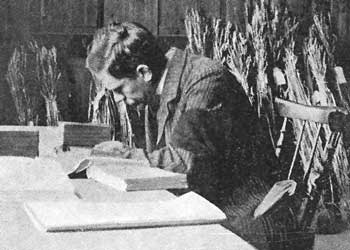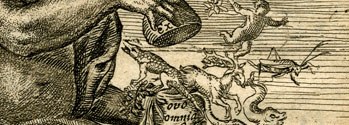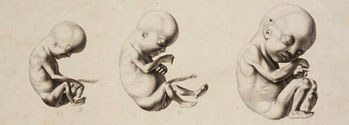Thursday 19 January 2012
4.30pm in Seminar Room 2, Department of History and Philosophy of Science
Staffan Müller-Wille (University of Exeter)
Revisiting the Mendelian revolution
 Much research into heredity in the late nineteenth and early twentieth centuries took place in such applied contexts as seed production, breeding yeast and cereals for large-scale beer making, mass-manufacture of vaccines, efforts to further public health, administration of psychiatric hospitals and eugenic programmes. In these areas increasing division of labour and more bureaucratic control promoted a culture of expertise and scientificity. We need to understand this if we want to explain the effect on the life sciences of the so-called rediscovery of Mendel's laws in 1900. Mendelism was not taken up as a theory, but as a set of important methods for realizing scientific values such as analyticity, exactitude, calculability and predictability. Breeders and eugenicists, in particular, shared a combinatorial approach that promised the transparent and reliable production of effects from one generation to the next. Synthetic chemistry, not physics, provided the model science. Framed in this way, the origin of genetics appears as much less of a revolutionary break. The concepts and procedures of early Mendelians fitted rather well into a world that had already been thoroughly shaped by medical and agro-industrial concerns with the production of stable varieties.
Much research into heredity in the late nineteenth and early twentieth centuries took place in such applied contexts as seed production, breeding yeast and cereals for large-scale beer making, mass-manufacture of vaccines, efforts to further public health, administration of psychiatric hospitals and eugenic programmes. In these areas increasing division of labour and more bureaucratic control promoted a culture of expertise and scientificity. We need to understand this if we want to explain the effect on the life sciences of the so-called rediscovery of Mendel's laws in 1900. Mendelism was not taken up as a theory, but as a set of important methods for realizing scientific values such as analyticity, exactitude, calculability and predictability. Breeders and eugenicists, in particular, shared a combinatorial approach that promised the transparent and reliable production of effects from one generation to the next. Synthetic chemistry, not physics, provided the model science. Framed in this way, the origin of genetics appears as much less of a revolutionary break. The concepts and procedures of early Mendelians fitted rather well into a world that had already been thoroughly shaped by medical and agro-industrial concerns with the production of stable varieties.
There will be tea before the lecture, at 4pm in Seminar Room 1, and a drinks reception afterwards, at 6pm in Seminar Room 1.
Discussion led by Staffan Müller-Wille: Heredity, race and disease
Thursday 19 January 2012 at 11.30am in Seminar Room 1 – all welcome
The concept of heredity, when it entered biology in the early nineteenth century, did not refer to the age-old observation that 'like engenders like'. It was rather geared towards a much more specific phenomenon, namely heritable variation. When early modern authors wrote about heredity, they focused on hereditary diseases and regarded transmission of such diseases as a curiosity. It simply struck them as odd that a disease – that is, something quintessentially accidental – should be transmitted regularly. In the eighteenth century, natural philosophers then linked this medical discourse with the discussion of human racial diversity, resulting in a conflation of the normal and pathological, the natural and the accidental. The regular transmission of heritable traits in general, whether normal or deviant, now came to be seen as pointing back to historical events and processes that had given rise to a diversity of traits in the first place. This was of great significance for the life and human sciences, including anthropology and medicine: it opened a space for a truly historical approach, as epitomized by Charles Darwin's theory of evolution.



